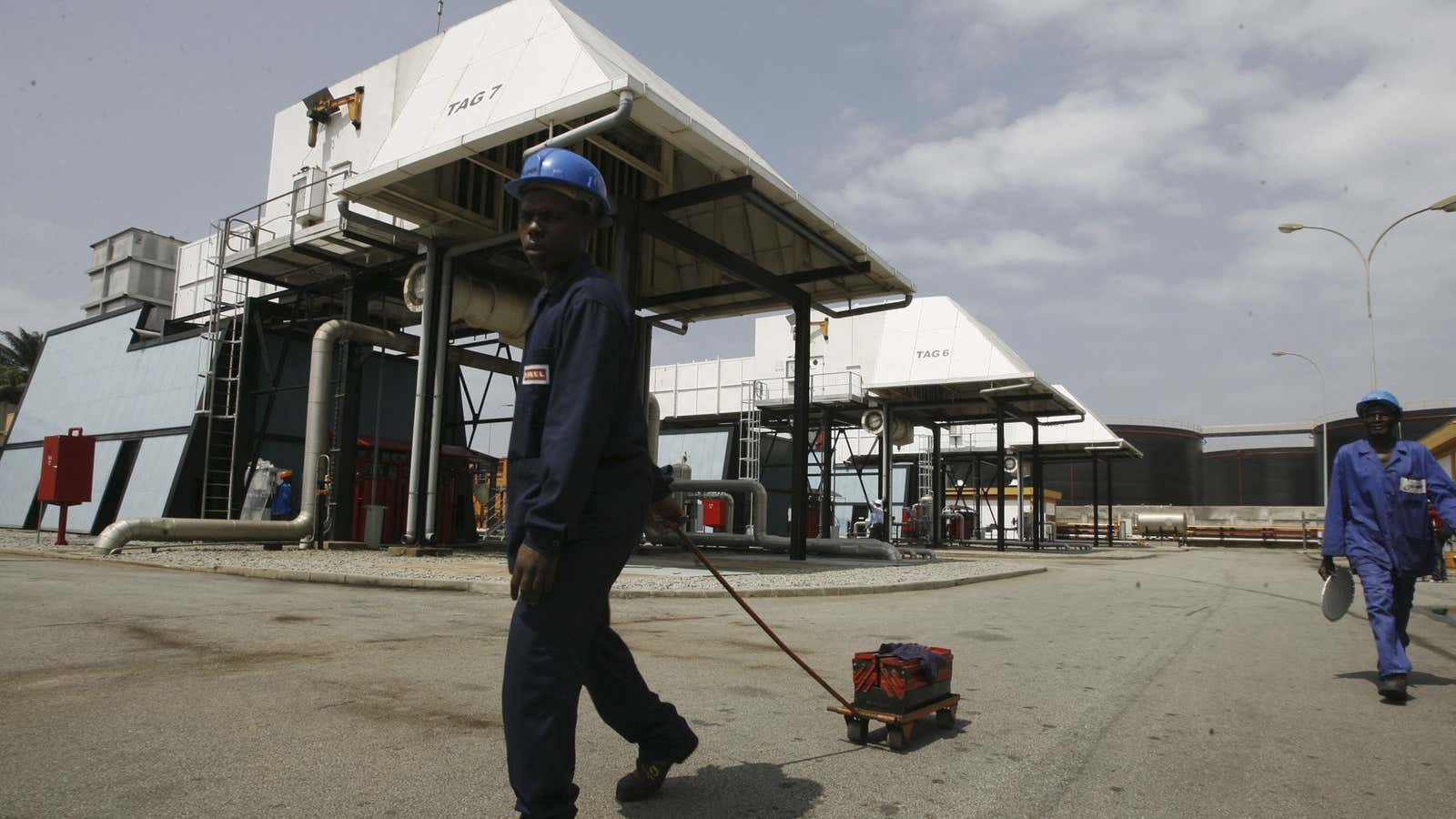Abidjan, Côte d’Ivoire
Arguably, the turning point in the 2012 US presidential elections between incumbent president Barack Obama and Mitt Romney was the leaking of a recording of the former Utah governor’s infamous “47%” comment.
The comment was a reference to a certain segment of US society being freeloaders while everyone else paid their way. It was leapt on by the Obama campaign to build on Romney’s characterization as the evil private-equity man who became a billionaire by stripping businesses of assets and firing thousands of people.
That image of private-equity investors in the US and Europe, as “vultures” or “locusts,” is one that’s useful for politicians and union leaders. But in Africa, it’s often turned on its head. Increasingly, progressive and ambitious governments are hungry to attract investors with the sizable pools of capital needed to solve big problems, from infrastructure deficits to power generation.
That was evident from a Quartz interview with Côte d’Ivoire’s vice president Daniel Kablan Duncan at this year’s African Private Equity and Venture Capital Association (AVCA) conference. He pointed out that many of the country’s new toll roads, power generation, and water distribution projects were backed by private investors, not government. “We welcome investors,” Duncan stressed.
But the Ivorian government is also focused on creating jobs and opportunities for young Ivorians. Typically, focusing on job creation and social development would be at odds with private equity’s world view. But in fact, the selfish unerring focus on long-term returns for investors in their funds means they’re aligned with the development targets of governments, like Cote d’Ivoire’s.
Private-equity players invested $3.8 billion in 145 deals across Africa last year within a range of businesses from agriculture and energy to healthcare and financial sectors. That was up more than 50% from $2.5 billion in 2015, according to AVCA data.
Several of the biggest private-equity players in Africa point out that “social good,” or a development dividend, generates an even bigger return as you invest in better road networks, electricity distributors, or agri-processing for example.
But it’s important to note private-equity firms never lose sight of their fiduciary responsibility to investors who have not asked them be impact investors or concentrate on social good, says Hurley Doddy, co-founder of Emerging Capital Partners. Yet, this is what ends up happening.
“By fulfilling these needs, they can make money because you’re helping to grow the economy and transform society,” says Doddy, whose firm has raised nearly $3 billion for investment over 15 years in Africa. “It’s a side benefit.”
Africa’s largest fund manager by assets, PIC, takes a similar outlook. With $150 billion of South African pensions under management, PIC believes its ultimate clients, the public workers of South Africa, will benefit from investments in economic and societal infrastructure such as schools, hospitals, and affordable homes but also see healthier financial returns from such a strategy.
PIC’s chief of staff Wellington Masekesa is particularly bullish on diversifying PIC’s assets by transplanting the strategy across other African countries. So far, it has deployed around 5%—or $7.5 billion—of its assets to that end. “This is African workers money we believe in sectors with strong link to economic growth,” he said.
